Non-Alcoholic Fatty Liver Disease
How to submit an article:
- Registered users can submit any published journal article that has a unique DOI (Digital Object Identifier) name or link to Research Hub.
- For example, you can paste the full DOI link:
https://doi.org/10.1109/5.771073or just the DOI name:10.1109/5.771073into the field above and click submit. - The person who is first to submit a valid article to Research Hub will forever be credited for it, and every article submission earns you +6 Research Points.
Related Topics
Published research studies are articles that present the findings of original research that has undergone a peer-review process and has been made publicly available in scholarly journals, books or other media.
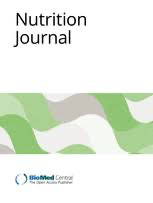
Pomegranate (Punica granatum L.) peel extract ameliorates metabolic syndrome risk factors in patients with non-alcoholic fatty liver disease: a randomized double-blind clinical trial
2023 Aug 22 Nutrition Journal Barghchi H, Milkarizi N, Belyani S, Norouzian Ostad A, Askari VR, Rajabzadeh F, et al.
Randomised Controlled Trial NAFLD Pomegranate PeelPomegranate peel extract, along with a calorie deficit diet, could improve risk factors of metabolic syndrome and reduce fatty liver in patients with non-alcoholic fatty liver disease.
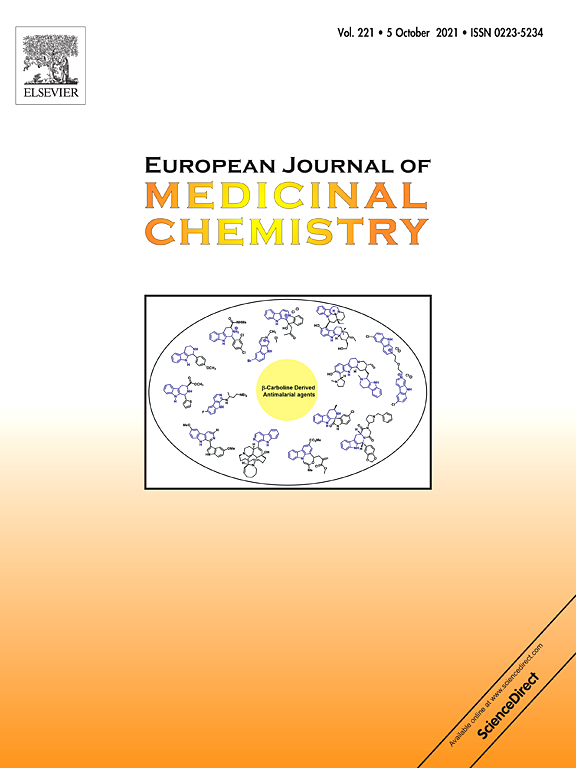
Effects and mechanism of action of Chrysanthemum morifolium (Jinsi Huangju) on hyperlipidemia and non-alcoholic fatty liver disease
2023 Jul European Journal of Medicinal Chemistry Li X, Li R, Wang X, Zhang X, Xiao Z, Wang H, et al.
Animal Study Chrysanthemum Cholesterol NAFLD Non-Alcoholic Fatty Liver DiseaseJin Si Huang Ju tea, a traditional Chinese beverage, contains compounds that potentially reduce lipids, mitigate insulin resistance and reduce liver inflammation in vitro.
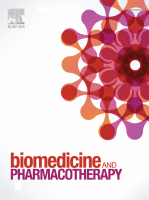
Medicinal uses, pharmacological activities, phytochemistry, and the molecular mechanisms of Punica granatum L. (pomegranate) plant extracts: A review
2022 Sep Biomedicine & Pharmacotherapy Maphetu N, Unuofin JO, Masuku NP, Olisah C, Lebelo SL
Review Article Type 2 Diabetes Gut Microbiota Obesity Pomegranate COVID-19Pomegranate extract and its phytochemicals can potentially inhibit severe acute respiratory syndrome coronavirus 2 (SARS-COV-2) and improve gut microbiota, preventing obesity and diabetes.

Carotenoids in orange carrots mitigate non-alcoholic fatty liver disease progression
2022 Sep 26 Frontiers in Nutrition Balbuena E, Cheng J, Eroglu A
Experimental Study Animal Study Carrot Orange NAFLDCarotenoid-rich foods like orange carrots were more effective in mitigating Non-alcoholic fatty liver disease than those with low carotenoid levels.

Just Drink a Glass of Water? Effects of Bicarbonate–Sulfate–Calcium–Magnesium Water on the Gut–Liver Axis
2022 Jun 28 Frontiers in Pharmacology Gravina AG, Romeo M, Pellegrino R, Tuccillo C, Federico A, Loguercio C
Fonte Essenziale water has beneficial effects on gastrointestinal hormone levels and the gut-liver axis in patients with NAFLD, but these effects are only observed during the period when the patients are drinking the water and are lost after discontinuation.
Clinical Study NAFLDResearch insights are moderated by the Research Hub team and offer an at-a-glance overview of interesting research findings.

2023 Nutrition Journal
Pomegranate peel extract, along with a calorie deficit diet, could improve risk factors of metabolic syndrome and reduce fatty liver in patients with non-alcoholic fatty liver disease.
Randomised Controlled Trial NAFLD Pomegranate Peel
Pomegranate (Punica granatum L.) peel extract ameliorates metabolic syndrome risk factors in patients with non-alcoholic fatty liver disease: a randomized double-blind clinical trial
Barghchi H, Milkarizi N, Belyani S, Norouzian Ostad A, Askari VR, Rajabzadeh F, et al.

2023 European Journal of Medicinal Chemistry
Jin Si Huang Ju tea, a traditional Chinese beverage, contains compounds that potentially reduce lipids, mitigate insulin resistance and reduce liver inflammation in vitro.
Animal Study Cholesterol Chrysanthemum NAFLD
Effects and mechanism of action of Chrysanthemum morifolium (Jinsi Huangju) on hyperlipidemia and non-alcoholic fatty liver disease
Li X, Li R, Wang X, Zhang X, Xiao Z, Wang H, et al.

2022 Frontiers in Nutrition
Carotenoid-rich foods like orange carrots were more effective in mitigating Non-alcoholic fatty liver disease than those with low carotenoid levels.
Experimental Study Carrot NAFLD Orange
Carotenoids in orange carrots mitigate non-alcoholic fatty liver disease progression
Balbuena E, Cheng J, Eroglu A

2022 Biomedicine & Pharmacotherapy
Pomegranate extract and its phytochemicals can potentially inhibit severe acute respiratory syndrome coronavirus 2 (SARS-COV-2) and improve gut microbiota, preventing obesity and diabetes.
Review Article COVID-19 Gut Microbiota Obesity Pomegranate Type 2 Diabetes
Medicinal uses, pharmacological activities, phytochemistry, and the molecular mechanisms of Punica granatum L. (pomegranate) plant extracts: A review
Maphetu N, Unuofin JO, Masuku NP, Olisah C, Lebelo SL
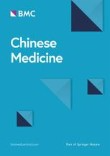
2021 Chinese Medicine
Traditional Chinese medicines might have various beneficial effects for non-alcoholic fatty liver disease such as improving TCM syndrome score, liver function, and body lipid profile.
Systematic Review Fatty Liver Disease NAFLD
Efficacy and safety of traditional Chinese medicines for non-alcoholic fatty liver disease: a systematic literature review of randomized controlled trials
Liang Z, Chen X, Shi J, Hu H, Xue Y, Ung COL
Review Articles
Review articles summarise and critically evaluate the current state of research on a specific topic or field by synthesising multiple primary research studies.

Medicinal uses, pharmacological activities, phytochemistry, and the molecular mechanisms of Punica granatum L. (pomegranate) plant extracts: A review
2022 Sep Biomedicine & Pharmacotherapy Maphetu N, Unuofin JO, Masuku NP, Olisah C, Lebelo SL
Review Article Type 2 Diabetes Gut Microbiota Obesity Pomegranate COVID-19Pomegranate extract and its phytochemicals can potentially inhibit severe acute respiratory syndrome coronavirus 2 (SARS-COV-2) and improve gut microbiota, preventing obesity and diabetes.

Efficacy and safety of traditional Chinese medicines for non-alcoholic fatty liver disease: a systematic literature review of randomized controlled trials
2021 Jan 11 Chinese Medicine Liang, Z., Chen, X., Shi, J. et al.
Systematic Review Meta-Analysis Metabolic Syndrome Fatty Liver Disease NAFLDTraditional Chinese medicines such as Shenge formula, Shugan Jianpi Huatan decoction and Heze lipid lowing oral liquid decoction might have positive effects on NAFLD by improving TCM syndrome scores, liver function, and body lipid profile.

Efficacy and safety of traditional Chinese medicines for non-alcoholic fatty liver disease: a systematic literature review of randomized controlled trials
2021 Jan 11 Chinese Medicine Liang Z, Chen X, Shi J, Hu H, Xue Y, Ung COL
Systematic Review NAFLD Fatty Liver DiseaseTraditional Chinese medicines might have various beneficial effects for non-alcoholic fatty liver disease such as improving TCM syndrome score, liver function, and body lipid profile.
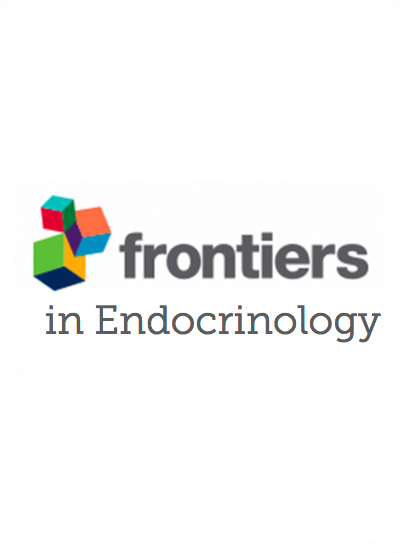
Chinese Medicinal Herbs Targeting the Gut–Liver Axis and Adipose Tissue–Liver Axis for Non-Alcoholic Fatty Liver Disease Treatments: The Ancient Wisdom and Modern Science
2020 Sep 30 Frontiers in Endocrinology Zhang Shuwei, Wong Yui-Tung, Tang Ka-Yu, Kwan Hiu-Yee, Su Tao
Review Article NAFLD Fatty Liver DiseaseMany clinical and experimental studies suggest that Chinese herbal formula are effective in reducing fatty liver disease, and revolving inflammation via many mechanistic pathways.
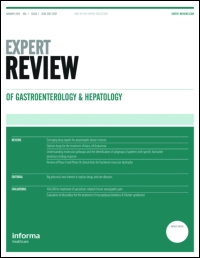
Olive oil antioxidants and non-alcoholic fatty liver disease
2019 Jun 25 Expert Review of Gastroenterology & Hepatology Abenavoli L, Milanović M, Milić N, Luzza F, Giuffrè AM
A large body of evidence emphasizes that olive oil, used as primary source of fat in MD, may play a crucial role in the health benefits of NAFLD patients. However, there are still scarce clinical data that evaluate the direct effect of olive oil in human with NAFLD.
Review Article Extra Virgin Olive Oil NAFLD AntioxidantClinical Trials
Clinical trials are research studies that involve people and are conducted to evaluate the safety and efficacy of new treatments or interventions, such as drugs, medical devices, or behavioural therapies.

Pomegranate (Punica granatum L.) peel extract ameliorates metabolic syndrome risk factors in patients with non-alcoholic fatty liver disease: a randomized double-blind clinical trial
2023 Aug 22 Nutrition Journal Barghchi H, Milkarizi N, Belyani S, Norouzian Ostad A, Askari VR, Rajabzadeh F, et al.
Randomised Controlled Trial NAFLD Pomegranate PeelPomegranate peel extract, along with a calorie deficit diet, could improve risk factors of metabolic syndrome and reduce fatty liver in patients with non-alcoholic fatty liver disease.

Changes in Biomarkers of Non-Alcoholic Fatty Liver Disease (NAFLD) upon Access to Avocados in Hispanic/Latino Adults: Secondary Data Analysis of a Cluster Randomized Controlled Trial
2022 Jun 30 Nutrients Pacheco LS, Bradley RD, Anderson CAM, Allison MA
The study found that varied intake of avocados had no significant effects on biomarkers of NAFLD in healthy adults, free of severe chronic disease.
Randomised Controlled Trial NAFLD AvocadoStudy Protocols
Published study protocols are detailed plans that outline the objectives, methodology, statistical analyses, and organisation of a research study that have been made publicly available for others to review and use as a reference.
Presentation Slides

Randomised Controlled Trial
Pomegranate peel extract, along with a calorie deficit diet, could improve risk factors of metabolic syndrome and reduce fatty liver in patients with non-alcoholic fatty liver disease.
Barghchi H, Milkarizi N, Belyani S, Norouzian Ostad A, Askari VR, Rajabzadeh F, Goshayeshi L, Ghelichi Kheyrabadi SY, Razavidarmian M, Dehnavi Z, Sobhani SR, Nematy M

Animal Study
Jin Si Huang Ju tea, a traditional Chinese beverage, contains compounds that potentially reduce lipids, mitigate insulin resistance and reduce liver inflammation in vitro.
Li X, Li R, Wang X, Zhang X, Xiao Z, Wang H, Sun W, Yang H, Yu P, Hu Q, Guo Q, Sun H

Experimental Study
Carotenoid-rich foods like orange carrots were more effective in mitigating Non-alcoholic fatty liver disease than those with low carotenoid levels.
Balbuena E, Cheng J, Eroglu A

Review Article
Pomegranate extract and its phytochemicals can potentially inhibit severe acute respiratory syndrome coronavirus 2 (SARS-COV-2) and improve gut microbiota, preventing obesity and diabetes.
Maphetu N, Unuofin JO, Masuku NP, Olisah C, Lebelo SL

Systematic Review
Traditional Chinese medicines might have various beneficial effects for non-alcoholic fatty liver disease such as improving TCM syndrome score, liver function, and body lipid profile.
Liang Z, Chen X, Shi J, Hu H, Xue Y, Ung COL

Systematic Review
Traditional Chinese medicines such as Shenge formula, Shugan Jianpi Huatan decoction and Heze lipid lowing oral liquid decoction might have positive effects on NAFLD by improving TCM syndrome scores, liver function, and body lipid profile.
Liang, Z., Chen, X., Shi, J. et al.

Review Article
Many clinical and experimental studies suggest that Chinese herbal formula are effective in reducing fatty liver disease, and revolving inflammation via many mechanistic pathways.
Zhang Shuwei, Wong Yui-Tung, Tang Ka-Yu, Kwan Hiu-Yee, Su Tao
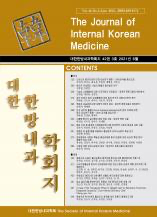
Systematic Review
Acupuncture relieved hepatic steatosis and reduced total cholesterol and triglyceride in non-alcoholic fatty liver disease patients.
Joon Hyun, Joo-bok Lee, So-yeon Kim, Chang-woo Han
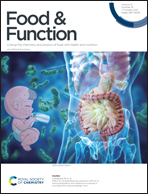
Experimental Study
When combined, Silibinin and Pu-erh tea extract prove more effective in preventing non-alcoholic fatty liver disease than when used individually.
Wen-Yi Hu, Xiao-Hui Ma, Wang-Yi Zhou, Xin-Xin Li, Ting-Ting Sun, He Sun
Executive Summary
Write an executive summary in the form of a blog article on the topic of "Research into Chinese medicine treatment for Non-Alcoholic Fatty Liver Disease" summarising the research below and using language that can be easily understood by patients and avoiding medical jargon using a professional and caring tone of voice.
Write an executive summary in the form of a blog article on the topic of "Researched Chinese medicine treatments for Non-Alcoholic Fatty Liver Disease" summarising the research below in an objective and easy to understand way, and using language that can be easily understood by patients. Group the article into Chinese medicine treatments first, followed by nutrition and other treatments. Avoid using medical jargon and use a professional and caring tone of voice.
Write me a concise but easy to understand executive summary on the topic of "Chinese medicine treatments for Non-Alcoholic Fatty Liver Disease" based on the following research that I will give you. Your summary should be 2 paragraphs long in Australian English spelling and include references to the studies.
A Randomised Controlled Trial published in 2023 in the journal Nutrition Journal found that Pomegranate peel extract, along with a calorie deficit diet, could improve risk factors of metabolic syndrome and reduce fatty liver in patients with non-alcoholic fatty liver disease. In the first phase, the research involved the hydro-alcoholic extraction of the peel of 750 kilograms of pomegranate using the soaking method. The second phase saw patients with non-alcoholic fatty liver disease divided into two groups - a placebo group and a pomegranate peel capsule group. Both groups followed a diet with a 500 kcal deficit for eight weeks. Aspects like intolerance to the treatment, participants' dietary intake, their lipid and glycemic profiles, blood pressure, body composition, insulin resistance indexes and changes in fatty liver disease evaluated through elastography were monitored. Further, the study reported substantial decreases in multiple indicators such as body weight, waist circumference, body mass index, body fat index, trunk fat, blood pressure, total cholesterol, triglyceride levels, LDL cholesterol, fat free mass, and fasting blood sugar in the group that took pomegranate peel capsules compared to the placebo group. Meanwhile, HDL cholesterol and liver steatosis and stiffness saw improvement. No significant differences, however, were found in the insulin and homeostatic model assessment for insulin resistance between the two groups.
A Animal Study published in 2023 in the journal European Journal of Medicinal Chemistry found that Jin Si Huang Ju tea, a traditional Chinese beverage, contains compounds that potentially reduce lipids, mitigate insulin resistance and reduce liver inflammation in vitro. The researchers identified 14 compounds in the Jinsi Huangju tea using different spectroscopic techniques, 11 of which had not been previously identified in this plant. Two of these compounds, apigenin-7-O-6″-malonylglucoside and luteolin-7-O-6″-malonylglucoside, were synthesized for the first time with a yield of 1.2% over 5 steps. In the findings, the natural compound apigenin-7-O-6″-malonylglucoside was found to inhibit the function of pancreatic lipase, reduce cellular lipid contents, and attenuate insulin resistance when tested in vitro. It was also observed to restore lipid and inflammatory profiles in plasma and the liver, as well as reduce hepatic steatosis in non-alcoholic fatty liver disease (NAFLD) mouse models. Thus, Jinsi Huangju and its active components are strong candidates for the development of drugs or functional foods that could provide a therapeutic strategy for hyperlipidaemia and NAFLD.
A Experimental Study published in 2022 in the journal Frontiers in Nutrition found that Carotenoid-rich foods like orange carrots were more effective in mitigating Non-alcoholic fatty liver disease than those with low carotenoid levels. In this study, male C57BL/6J mice were randomly assigned to one of four experimental diets for a period of 15 weeks: a low-fat diet, a high-fat diet, a high-fat diet with 20% white carrot powders, or a high-fat diet with 20% orange carrot powders. Observations revealed that those mice on the high-fat diet enriched with carotenoids from the orange carrots gained less weight and displayed less hepatic lipid deposition compared to the white carrot group. Moreover, lower levels of triglyceride content were seen in the orange carrot group. The increase of particular proteins indicated that carotenoids found in orange carrots improved β-oxidation, thereby inhibiting NAFLD development more significantly. Further examination showed noticeably higher mRNA and protein levels of a particular transcription factor.
A Review Article published in 2022 in the journal Biomedicine & Pharmacotherapy found that Pomegranate extract and its phytochemicals can potentially inhibit severe acute respiratory syndrome coronavirus 2 (SARS-COV-2) and improve gut microbiota, preventing obesity and diabetes. The study employs the use of in silico molecular docking methodologies to demonstrate that extract from pomegranates and their phytochemicals can serve as inhibitors of severe acute respiratory syndrome coronavirus 2's spike protein and the angiotensin-converting enzyme 2 receptor contact. These findings are further reinforced by clinical trials which suggest that pomegranates can also alleviate non-alcoholic fatty liver disease, metabolic syndrome, dental infections, and symptoms of menopause. This study has also identified numerous active compounds within pomegranates such as alkaloids, anthocyanidins, tannins, flavonoids, phenolics, proanthocyanidins, sterols, terpenes, terpenoids, xanthonoids, fatty acids, organic acids, lignans, saccharides, and vitamin C. This mixture of active compounds is believed to significantly contribute to the broad array of pharmacological activities identified within the pomegranate. This includes anti-diabetic, anti-tumor, anti-inflammatory, anti-malaria, anti-fibrotic, anti-fungal, and anti-bacterial effects. The extract from this fruit improves gut microbiota which could potentially aid in the prevention of obesity and diabetes.
A Systematic Review published in 2021 in the journal Chinese Medicine found that Traditional Chinese medicines might have various beneficial effects for non-alcoholic fatty liver disease such as improving TCM syndrome score, liver function, and body lipid profile. A total of 53 RCTs involving 5997 participants with NAFLD were included in this review. Each included RCT tested a different TCMs giving a total of 53 TCMs identified in this study. Based on the evaluation of the RCT results, TCMs might have various beneficial effects such as improving TCM syndrome score, liver function, and body lipid profile. A range of non-serious, reversible adverse effects associated with the use of TCMs were also reported. However, no conclusion about the efficacy and safety of TCMs in NAFLD can be made. The quality of reporting was generally poor and the risks of bias was mostly uncertain in all trials. There is some evidence from RCTs that supported the effectiveness and safety of TCMs for NAFLD. However, no conclusive recommendations can be made due to the questionable quality of the RCTs. Improvement in the RCT protocol, the use of a larger sample size, a setting of multicenter, and a more focused approach in selecting TCMs are recommended for developing high quality evidence about the use of TCMs in managing NAFLD.
A Systematic Review published in 2021 in the journal Chinese Medicine found that Traditional Chinese medicines such as Shenge formula, Shugan Jianpi Huatan decoction and Heze lipid lowing oral liquid decoction might have positive effects on NAFLD by improving TCM syndrome scores, liver function, and body lipid profile. A total of 53 RCTs involving 5997 participants with NAFLD were included in this review. Each included RCT tested a different TCMs giving a total of 53 TCMs identified in this study. Based on the evaluation of the RCT results, TCMs might have various beneficial effects such as improving TCM syndrome score, liver function, and body lipid profile. A range of non-serious, reversible adverse effects associated with the use of TCMs were also reported. However, no conclusion about the efficacy and safety of TCMs in NAFLD can be made. The quality of reporting was generally poor and the risks of bias was mostly uncertain in all trials.
A Review Article published in 2020 in the journal Frontiers in Endocrinology found that Many clinical and experimental studies suggest that Chinese herbal formula are effective in reducing fatty liver disease, and revolving inflammation via many mechanistic pathways. The NAFLD pandemic implies an increase number of patients diagnosed with NAFL, NASH, liver fibrosis and HCC in the near future. Although the interpretation and diagnosis of NAFLD in Chinese medicine are different from those in western medicine, many clinical and experimental studies suggest that Chinese herbal formula are effective in reducing hepatic steatosis, and revolving inflammation via many mechanistic pathways. Some Chines herbal formulae also target at the gut–liver axis in NAFLD, while the adipose tissue–liver axis emerges to be a therapeutic approach for the treatment of NAFLD. More clinical and in-depth mechanistic investigations may help to validate the roles of these Chinese herbal formulae for the treatment of NAFLD. Application of the modern technology can also help to discover novel herbal-based therapeutics for the treatment.
A Systematic Review published in 2018 in the journal The Journal of Internal Korean Medicine found that Acupuncture relieved hepatic steatosis and reduced total cholesterol and triglyceride in non-alcoholic fatty liver disease patients. From the 8 included trials, the values of the following examinations were extracted: liver ultrasonography, liver CT, body fat CT, aspartate transaminase (AST), alanine transaminase (ALT), gamma-glutamyltransferase (GGT), total cholesterol (TC), triglyceride (TG), low density lipoprotein (LDL) cholesterol, high density lipoprotein (HDL) cholesterol, fasting blood sugar (FBS), hosmeostatic model assessment for insulin resistance (HOMA-IR), weight, body mass index (BMI), waist hip ratio (WHR), obesity degree, body fat mass, body fat rate, leptin, malondialdehyde (MDA), and super oxide dismutase (SOD). In the 4 outcomes, cure rate in liver ultrasonography (RR=1.56; 95%CI=1.05~2.31; P=0.03), cure rate in liver CT (RR=2.23; 95%CI=1.33~3.72; P=0.002), TC (MD=-0.78; 95%CI=-1.41~-0.15; P=0.02), and TG (MD=-2.05; 95%CI= -3.88~-0.21; P=0.03), acupuncture was more effective than the control intervention.
A Experimental Study published in 2017 in the journal Food & Function found that When combined, Silibinin and Pu-erh tea extract prove more effective in preventing non-alcoholic fatty liver disease than when used individually. The research used obese mice (ob/ob) and fed them a high-fat diet along with the oral administration of Silibinin, Pu-erh tea extract, or both, over a six-week period. Concurrently, lean mice were used as a control group, consuming a regular diet. The blood chemical index and histopathological evaluations were analyzed to determine the effects of Silibinin and Pu-erh tea extract on the mice, particularly in terms of weight, blood lipid levels, fat metabolism, and inflammatory response. The results showcased that in comparison to the group of mice suffering from non-alcoholic fatty liver disease, the groups which received either Pu-erh tea extract, Silibinin, or a combination of both exhibited significant reductions in weight and blood lipid levels. Furthermore, both Silibinin and Pu-erh tea extract, whether used alone or in tandem, were found to improve fat metabolism and decrease the inflammatory response to a certain extent. The combined group, however, displayed the strongest efficacy in adjusting fat metabolism and inhibiting oxidative stress. They also revealed the drugs' ability to inhibit fat synthesis and improve cholesterol homeostasis by regulating the expression of specific genes. The combined effect was superior to that of individual usage.
Moderation Tools
Topic
Sign In
Users not signed in are limited to viewing the 5 most recent items of content.
